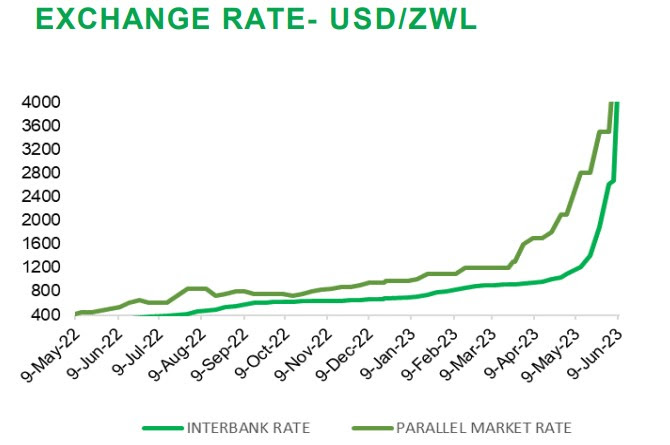By ETimes
Zimbabwe’s banks will limit credit availability owing to unfavourable rates and rising inflationary pressure, the latest report shows.
Policymakers recently decided to increase the bank policy rate from 140% to 150% per annum in response to recent inflationary pressures.
This denotes monetary policy tightening to reduce inflationary pressures and maintain price stability.
“The concern is whether this adjustment is enough to discourage borrowing, given the current inflation rate. In Zimbabwe, the local currency has lost more than 600% against the greenback on the interbank market, compared to just 200% inflation during the previous benchmark rate period set at 150%,” Zimnat Asset Management stated in its latest weekly economic research report.
“This indicates that the interest rate response is insufficient in curbing speculative borrowing and lacks effectiveness in influencing the exchange rate. Banks are likely to reduce credit extension due to unfavorable rates and high inflationary pressure.”
Zimnat thinks that the authorities need to be consistent in their policymaking in order to increase market confidence and reduce speculation.
“This is because some of these measures have been reversed before they come to fruition. The removal of the 90-day liquidation of export proceeds comes barely a fortnight after the Treasury announced its restatement,” reads the report.
Our thoughts
As the future of the nation remains uncertain, the subject of the exchange rate has steadily shifted into the centre of local economic conversation. The public’s reaction to the most recent series of measures is a crystal-clear representation of the mountain that the authorities must climb and it just gets bigger with each slip-up or band-aid solution.
It is true that there is a complicated web of concerns that must be managed between various economic and social elements. But with the nation’s economic climate becoming more unsteady, there is an obvious need for firm, well-thought-out policy decisions that tackle the problems at their core. If not, the economy will continue to be in a precarious position, prone to repeated occurrences, with the same futile policy flip-flopping leading nowhere – Harare



